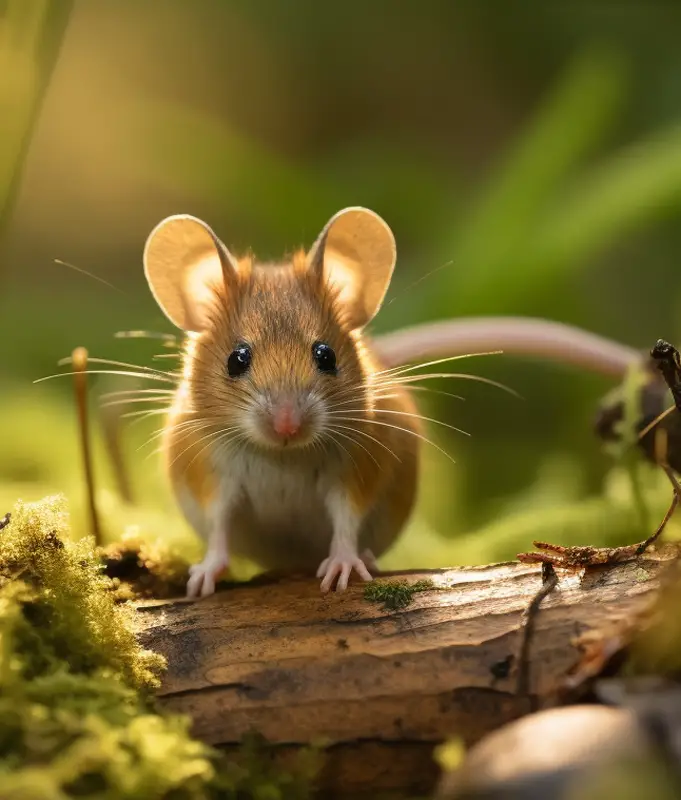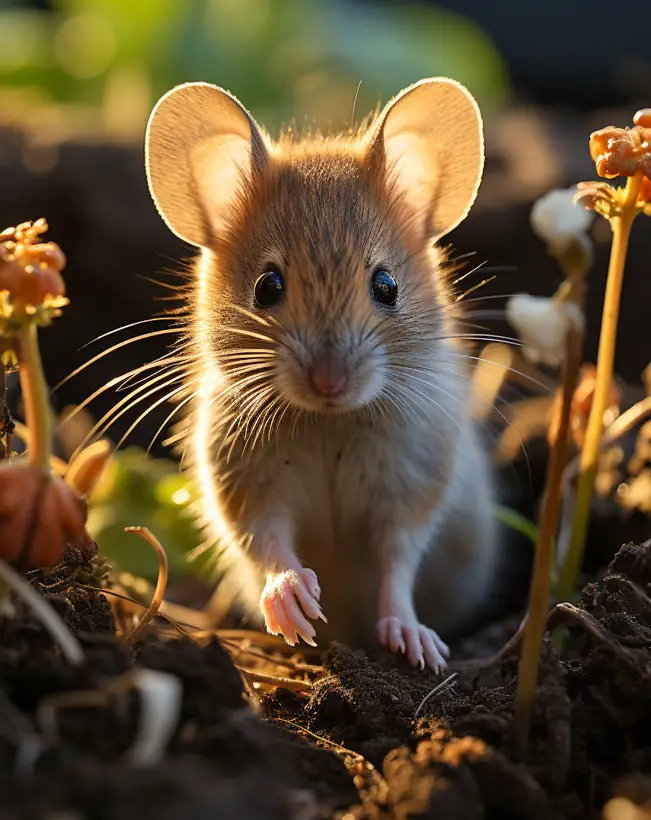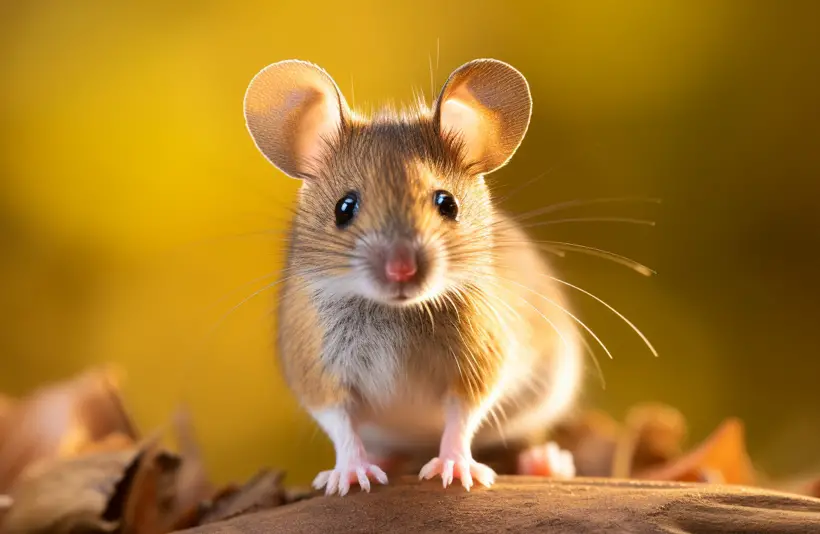What Smells Do Mice Hate: Everything You Need To Know
The existence of mice within the environment is essential for the ecosystem’s sustainability. But it is also true that they can do maximum harm to our houses, gardens, etc. In this case, the best resolution is using smells to keep the mice far away from your home.
So, what smells do mice hate? Mice hate the smell of
- Cinnamon
- Peppermint
- Ammonia
- Mothballs
- Chili oil and powder
- Bleach
Out of all, cinnamon, ammonia, and peppermint are more effective than others.
Here, we will inform you about the smells that mice hate in detail. We will also discuss how to effectively use those smelling items to protect your surroundings from mice infestations. Let’s dive in.
In Detail: What Smells Do Mice Hate
We have already mentioned the items like cinnamon, ammonia, etc., but in short. Now, let’s check those in detail.

1. Cinnamon
Cinnamon is a very common household item. It is a spice extracted from the bark of cinnamon tree species. Cinnamons emit a warm, sweet, and spicy fragrance. This smell is highly powerful to keep the mice away.
The compounds in cinnamon, like cinnamaldehyde, interfere with the receptors in mice’s noses. The associated smell causes discomfort and restricts them from staying in cinnamon-scented areas.

How to Use
Here’s how to use cinnamon for getting rid of mice;
- Scatter cinnamon powder in corners, entry points, and known mouse activity areas
- Place cinnamon sticks or sachets near nesting areas of mice
- Mix cinnamon oil with water and spray the mixture throughout the mice-prone area
2. Peppermint
Peppermint is a popular herb with an invigorating scent. It has a distinct smell that is empowered by a minty fragrance. The associated strong peppy aroma discourages mice from entering and staying in peppermint-scented areas.
In this case, the strong smell of peppermint overwhelms the olfactory receptors of mice.

How To Use
Here’s how to use peppermint for getting rid of mice;
- Mix factory-made peppermint essential oil with water and spray that solution in the mice-prone area
- Soak cotton balls with peppermint oil and place them inside the mouse den
- Grow peppermint plants in the house garden
3. Ammonia
As a mice repellent, you can depend on ammonia’s smell. It has a strong, pungent gas, which creates a suffocating feel. If you use ammonia, the respective unpleasant feel derives mice away from the household’s hidden places.
However, this preventive measure is not that effective as the odor only lasts for a short time. As soon as the smell fades, the mice come back.

How to Use
Here’s how to use ammonia for getting rid of mice;
- Soak cotton balls or rags in ammonia and place them near mouse entry points, nesting areas, or areas with mouse activity
- Spray the ammonia-based solution on the surfaces of sewerage openings
- Placing open containers of ammonia in the basement or store room is also applicable. But if there are kids in the house, do not go for this approach
4. Mothballs
Mothballs are small and solid balls made of naphthalene or paradichlorobenzene. These white-color balls are commonly used to protect clothing and fabrics from moth damage. Mothballs have a strong odor with a medicinal fragrance.
This smell is believed to keep the mice away. However, mothball’s smell is not very effective against mice. It may keep away the baby or weak mice, but the strong ones just don’t care about the chemical-like smell.

How to Use
Here’s how to use mothballs for getting rid of mice;
- Purchase a packet of mothballs and place a few balls at the corners of the house and mouse-prone areas
5. Chili Oil or Powder
Chili oil or powder is derived from chili peppers. It contains capsaicin, the compound responsible for the spiciness. Here, capsaicin is known for its intense and pungent flavor.
It triggers pain receptors in mammals, including mice, causing discomfort. And in this way, chili oil and powder keep away the mice.

How to Use
Here’s how to use chili oil or powder to get rid of mice;
- Dilute chili oil with water and spray the liquid mice-prone areas
- Sprinkling chili powder in areas like corners, cracks, etc., within the household
6. Bleach
Bleach is a factory-made chemical solution. It is commonly used for cleaning and disinfecting purposes. Bleach contains chlorine compounds that produce some sort of strong odor. Many people believe that the smell of bleach can keep the mice away.
But, there is no valid scientific evidence about it. We see the application of bleach is crucially effective in the case of restricting the circulation of mice-related germs.
How to Use
Here’s how to use bleach for getting rid of mice;
- Spread bleach throughout the areas affected by mice
- Use powder bleach at the sewerage openings
Nevertheless, you can also check out this YouTube video to learn more about smells that mice hate:
Drawbacks Of These Mice Repellents

The table below shows the drawbacks of the above-mentioned items.
| Material | Drawbacks |
|---|---|
| Cinnamon | Individual mice may respond differently |
| The smell fades away quickly | |
| Peppermint | The smell fades away with time |
| In cases of severe mouse infestations, using peppermint alone does not provide complete control | |
| Ammonia | Accommodates health hazards |
| Proper ventilation is needed | |
| Mothballs | Mothballs contain toxic chemicals |
| Chili powder or oil | It can trigger burning if it contacts your skin or eyes |
| Bleach | Highly toxic |
| Not as effective as mice-repellent |
FAQs
Here, we answer some of the most common questions people also ask regarding mice issues.
Q: What smell repels mice immediately?
There are several smells that can repel mice immediately. But the most effective one is the smell of peppermint. You can use peppermint oil to get faster results in terms of repelling mice.
Q: Can I rely solely on these smells to get rid of mice?
Well, the mentioned smells may help deter mice to some extent, but a total blocking of the mice infestation is not possible. Using these smells alone may not provide complete control, as mice are highly adaptive. Sealing entry points and consulting professionals are recommended to get an ultimate solution.
Q: Can I use citrus smells to repel mice?
There is no evidence indicating that the smell of citrus, like orange, lemon, etc., can keep away mice. Citrus smells are more effective in deterring insects like ants, cockroaches, etc.
Final Words
We hope that our guide on what smells do mice hate will help you to keep the household mouse-free. Using items like cinnamon, ammonia, peppermint, etc., you can restrict the entry of mice. However, while using any of the mentioned items, consider the drawbacks as well.
Remember, prevention is the key to managing mouse infestations. You must maintain cleanliness, eliminate food sources, and seal potential entry points to restrict mice infestation. Also, we suggest you consult the state’s guidelines while performing the mice control job.





